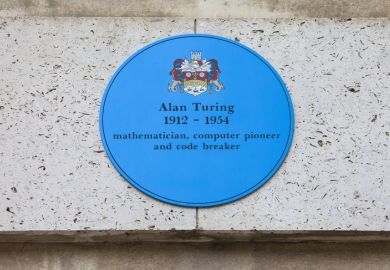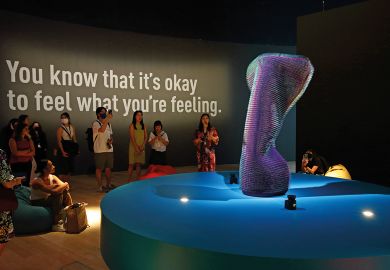Source: Getty
You pays your money: students taking Moocs will be able to get their achievements certified - for a small fee
The certification offered for massive open online courses (Moocs) will never be as valuable as the currency of a traditional degree from a prestigious university, the co-founder of one of the biggest Mooc providers has said.
In an interview with Times Higher Education, Andrew Ng, who launched the Coursera platform last year, also said he was not concerned about making money, despite the fact that his company has just unveiled a “signature track” for Moocs - a system that allows students to pay a fee in order to receive more meaningful certification of their online achievements.
Coursera is one of several large US companies offering free online access to university courses, and the first to start charging participants who wish to obtain accreditation.
“I don’t think this will ever be as valuable as a degree from one of our partner universities,” said Professor Ng, who is an associate professor in the department of computer science at Stanford University.
“I really don’t want to put us in competition with other ways of education because I think universities provide a great service.”
He says he thinks that Mooc certificates may be most attractive to older people who have already completed a bachelor’s degree.
“It doesn’t make sense to go to [university] for four years and then coast for the next 40 years on what you learned … so for those people who already have a degree, I think Coursera certificates will be very valuable.”
According to Professor Ng, the fee-based pathway is Coursera’s biggest potential revenue stream, and it will be rolled out across the majority of its 213 online courses.
However, he denied that the move would exclude students from poorer backgrounds from benefiting fully from Coursera’s online courses.
“Regarding pricing, because of our commitment to making education affordable and available to everyone, we will offer financial aid to students who would benefit from this but cannot afford it,” he said.
“So if you’re a poor kid in Africa, and don’t have a credit card, we want you in the signature track anyway.
“This is about education, it is not about making money, and so if you can’t afford it we still want you to benefit from it. This is not the sort of decision that a normal company would make. But we are here to educate everyone.”
The first Coursera programme offering signature-track certification is Duke University’s “Introduction to genetics and evolution”, which costs $90 (£58). Pricing will vary depending on the length of the course. In order to verify their identity, students wishing to go down the fee-paying pathway will be required to supply a photograph of themselves and a photograph of a recognised identity document such as a passport or driving licence.
In addition, students will be asked to enter a passage of text so their typing style can be assessed. They will then be required to provide a typing sample before submitting homework, in order to “prove” that the person submitting the work is the person taking the course.
“The way you type is very distinctive…the rhythm of your keystrokes when typing a particular passage of text would be very difficult for [someone else] to recreate,” Professor Ng said.
“Every time you submit homework via the website we verify it is really you; we ask for a typing sample. If for some reason you can’t do that - for example, you have a broken wrist or something - then we will request that you provide another picture via the webcam [to prove your claim].”
The University of Edinburgh currently offers six courses via the Coursera platform, which are due to start on 28 January. Although Edinburgh’s courses are not among those in the initial rollout of the signature track, they are expected be incorporated into the fee-based pathway in the future.
Jeff Haywood, Edinburgh’s vice-principal for knowledge management and chief information officer, said the move towards charging Mooc students for upgrades did not undermine the “open” nature of the courses.
“We are clear that deciding to study our Moocs should be free of charge - elective or optional additional services will usually be for a fee,” he said.
However, he added that more effective verification processes could make it easier for universities to start offering credits to students who have completed Moocs.
“These certificates give our learners more empowerment because there is no uncertainty as to the fact that they did the work - assuming the identity- track process works as it is intended.
“Clearly, having certainty will make it easier for universities to offer some formal credit value to their Moocs,” Professor Haywood said.
Register to continue
Why register?
- Registration is free and only takes a moment
- Once registered, you can read 3 articles a month
- Sign up for our newsletter
Subscribe
Or subscribe for unlimited access to:
- Unlimited access to news, views, insights & reviews
- Digital editions
- Digital access to THE’s university and college rankings analysis
Already registered or a current subscriber? Login




